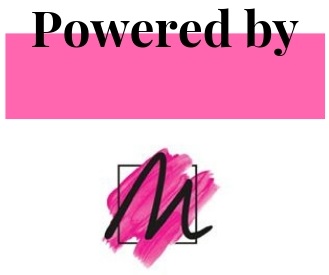I’ve never gotten hooked on reality TV, yet it’s impossible to deny the impact that shows like “Love & Hip Hop” have on audiences. Friends and social media introduced me to one of the franchise’s breakout stars, Cardi B, before I ever even tuned in for an episode.
The times I have watched, the heated disagreements between the women on the show and others like it – during which drinks are often thrown and expletives flow – seemed so commonplace that it all became too predictable and is part of the reason why I never became a loyal follower.
As fictional TV shows seem to have grown more diverse in their depictions of black women – think “Black-ish,” “Insecure” and “Queen Sugar” – the reality realm hasn’t quite kept up, recycling some of the same imagery of black women as short tempered and confrontational. Some critics say these shows perpetuate stereotypical images, particularly the “angry black woman” trope, and a survey released recently suggests they have reason to be concerned.
A recently released survey examining perceptions of black women in media found that 72 percent of the black women perceived depictions of themselves in the media negatively compared to 46 percent of white women. The survey was coordinated by the American Advertising Federation (AAF), Zeta Phi Beta Sorority and professors at the University of Missouri.
Five hundred black and white women were surveyed earlier this year, and a follow-up survey included another 500 women of other races. All were between the ages of 18 and 24. The survey followed a 2015 white paper and watch parties that explored the state of black images in media. The results of the survey were announced during the recent Legislative Conference of Congressional Black Caucus in Washington, D.C.
The survey explored viewership of specific reality TV shows, including “Love & Hip Hop: Atlanta,” “Basketball Wives” and “The Real Housewives.” Of those surveyed black women were watching more of the shows in question than white women, so beyond influencing how other women might view black women, seeing these images can have an effect on black women’s self-image.
When asked about what descriptors they’d use to describe the way black women are depicted on reality TV, 53 percent of black women and 37 percent of the white women said “argumentative.”
Connie Frazier, chief operating officer of AAF, is interested in sharing the survey results with industry professionals, so they’ll understand the importance of including black women and other women of color in their decision-making processes when it comes to developing images for advertisements and other media.
Frazier says “it is important that we advocate for a more balanced depiction of African-American and other women of color in ads and media and refrain from reinforcing stereotypical images.”
Last year, Mona Scott-Young, executive producer of the “Love & Hip Hop” franchise, which includes Atlanta, New York, Hollywood and soon Miami, spoke to Essence Magazine about the criticisms of her franchise.
“There are tons of shows that people can watch that depict different backdrops and different lifestyles … ‘Love & Hip Hop’ is one. Leave them alone,” she said. “This is, you know, the world that they know, the way that they navigate their world. They have every much a right to be here as you and I do.”
In recent years, the “angry black woman” stereotype hasn’t been reserved only for women on reality TV shows. It’s also been used as a way to undermine the credibility of black women in positions of power and influence, including former first lady Michelle Obama and television producer Shonda Rhimes.
But some black women reject the effort to use the stereotype as a way of silencing them from speaking out, expressing outrage at the issues affecting their communities.
Farah Tanis, co-founder of Black Women’s Blueprint, along with other community activists organized the March for Black Women in D.C. in September to raise awareness of gendered racism. The event attracted 3,329 registered supporters. Tanis says that when black women speak out against such issues as white supremacy, domestic violence, police brutality and a lack of access to health care, the anger they feel is justified.
“How are we to remain calm? Should we sit idly by as we’re being pretty much knocked off one by one? Of course we’re angry … and rightfully so,” Tanis says. “We’re also very joyful. We’re also very caring. We’re also very loving. Our love is radical.”
Tanis adds, “I think what’s going on is that people are seeing anger as an emotion that we shouldn’t have and that we can’t own. I own my anger … It’s rage that begins revolutions .”
Because pop culture is one of the most accessible outlets for an exchange of ideas and experiences, reality TV shows offer fertile ground for stereotypical images to flourish. But the problem isn’t necessarily that these depictions exist; it’s that they’re deemed to be negative, because black women aren’t always allowed to be completely human, flaws and all.
Black women have as much a right as anyone to feel and express anger whether it’s over a cheating man or threats to their civil liberties. But we often face harsh criticism either way. We don’t all express anger in the same way. For every Cardi B and Tahiry there’s a real-life Rainbow Johnson and Nova Bordelon. We all have different experiences that have shaped us into who we are as individuals, and this is why reality TV should feature more nuanced narratives to reflect a balance of perspectives.
This “angry black woman” stereotype existed long before reality TV shows came about, so I can’t honestly say that more diverse depictions is the antidote, it but it would at least offer a fuller picture of who we are.





